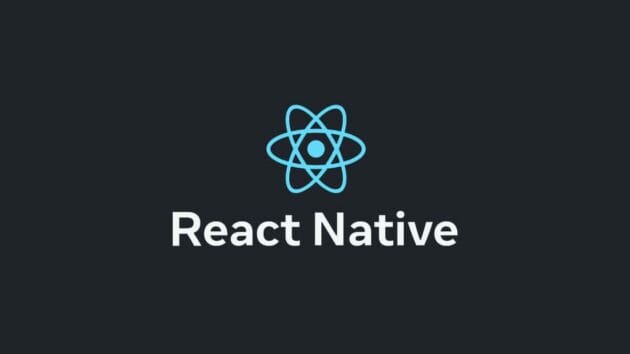FinTech Apps have changed the game in the finance industry. If you want to develop your fintech app and are stuck with choosing an app development approach, this blog is for you.
Fintech apps are saving people from a lot of complications that make our life difficult. They make daily transactions easy, secure, and quick. So, the question is what makes these apps user-friendly? Of course, the frameworks and programming languages make them amazing apps.
It is a long-time debate – “React Native vs Hybrid: Which is a better platform for fintech app development?” And which is suitable for start-ups that bring the best quality with a low cost of development.
Many expert developers say that hybrid apps develop quickly and are less expensive. Moreover, it’s hard to define the pros and cons of the different frameworks before working with one. The statistics show that by 2026, consumers will download 143 billion mobile apps from the Google play store and 38 billion downloads from the apple app store.
While developing a FinTech app various criteria are taken care of in developing a fintech application
- The successful fintech app has the best UI/UX features.
- Strong security ensures data protection by providing the best security services.
- Best in performance and usability.
These are the factors that you should consider while creating a fintech app. Let’s start the blog with Native apps.
What is a Native App?

Simply, native apps are designed especially for a certain platform. A native app is developed within a mature ecosystem. By using native languages, the app will only be used for the specific operating system.
Moreover, Java is used for native Android applications, and for iOS applications Swift or Objective-C languages are used. Many developers choose native apps because they offer exceptional performance. We can say that every framework has pros and cons but developing a fintech app is a complex task. When it comes to providing better performance for fintech apps, React Native is best.
Let’s look at some pros and cons of native app development.
Pros of Native App Development

- They offer better performance and are more reliable because they are built within a framework that is native to the platform.
- They provide the best user experience as it allows developers to manage and solve security issues than hybrid apps.
- Native apps provide the best data protection and security.
- With built-in capabilities, users can easily access them on their devices, for example, address books, cameras, GPS, and many more.
Recommended for you: 10 Reasons to Opt No-Code Development Approach for Mobile App Development.
Cons of Native App Development

- It takes more time to launch an app on two platforms because development can take time from 6 months or more.
- Native app developers are less in the market as developing native apps required a certain level of expertise in tools and languages.
- Building two different apps is expensive.
When to Choose React Native?

Instagram, Walmart, Airbnb, and many other names are using React Native for creative applications. Here are several reasons why you choose React Native for fintech app development.
- When you are ready to patiently launch your solutions.
- You are prepared for twofold team, cost, and time.
- There are no budget issues.
If the answer is Yes for all the above points and you can manage all the above things, you can choose React Native for fintech app development. Otherwise, you can choose hybrid for app development.
Moreover, if you choose React Native for your fintech app development, your app will be more user-friendly, and secure and provide the best speed than other apps.
We recommend React Native because it is best for developing a fintech app. It’s like a future investment.
Tools required for Android native apps are mentioned below:
Tools required for the iOS app are mentioned below:
Some of the best native apps are Google Maps, Spotify, Artsy, and Pinterest. In the next section, we shall be discussing Hybrid apps.
What is a Hybrid App?

Hybrid apps provide solutions for both native and web apps. Hybrid apps allow developers to use a single code base that can operate across various platforms. You can easily create a fintech app for start-ups by choosing a Hybrid platform.
Moreover, hybrid app development is easy and economical in comparison to native apps. You can encrypt the code and reuse it. Its performance and UX are similar to native apps. Hybrid app development frameworks include Visual Studio, Ionic, and Apache Cordova.
Let’s look at some pros and cons of hybrid app development.
Pros of Hybrid App Development

- It has a single code base that can be used on multiple platforms. They are easy to build and take less time to get into the market. If you compare it with building two native apps hybrid apps build 20-50% faster.
- You can easily find hybrid app developers as compared to native app developers because hiring hybrid app developers is more affordable. Developing and maintaining a hybrid app for Android and iOS costs less compared to developing two native apps.
- It’s easier to develop new features and deploy them on hybrid compared to native apps.
- By opting for a hybrid solution for your app you can easily update it, repair it, and expand its functionalities at a lower cost.
Cons of Hybrid App Development

- Low in performance compared to Native apps.
- Difficult in debugging.
- They have limited third-party app support.
- Less secure because of restricted development opportunities to implement security features.
- Hybrid apps provide no offline support.
By going through Hybrid apps’ pros and cons you can compare native and hybrid easily and choose what works best for you.
You may like: 15 Big Challenges in Mobile App Development You Need to Know.
When to Choose a Hybrid App for Fintech App Development?

Hybrid apps are great for start-ups as they provide high development speed and cost-effective nature. If you are planning to launch MVP (minimum viable product) with a limited budget and with tight deadlines hybrids are best.
Moreover, hybrid apps are simple, develop faster than native apps, and are cost-effective. If the UX of fintech app requirements is high functionality and performance, you should consider React Native for developing fintech apps.
Hybrid apps are less secure which makes them not ideal for Fintech and banking solutions. As fintech apps required strong security for users. Here are some Tools for hybrid app development:
Some of the best hybrid apps are Instagram, JustWatch, Gmail, and Airbus. Let’s compare these in the next section.
React Native vs Hybrid Comparative Table

| React Native | Hybrid | |
|---|---|---|
| Language stack | React Native was born out of the React JS framework and sticks to a JS code that is similar to HTML but isn’t it’s called JSX. | The hybrid framework is based on Angular which is a JavaScript framework. It is in sync with the MVC pattern, Hybrid renders templates from HTML. |
| Testing during development | You can see the outcome of your customizations when you go making them. There isn’t any need for recompilation or rebuilding, the result is instantaneous. | You can preview your app in the browser and smart devices in an instant. It rapidly refreshes as you continue making changes to the app. |
| Developer experience | React Native renders native views there is no scope for web views. You can get time channelizing important stuff rather than being stuck in bug fixing. | The hybrid consists of web components; you have to deal with a lot of bugs that appear for each browser. This makes the entire app-building task very difficult. |
| User experience | The performance will be much better with app development using React Native and you get the native feel with smooth animation. React Native is just a library bundled with your app which is best for fintech. | Performance is the major problem with the hybrid app. The web was originally built for web pages, not for complex apps. |
| Updating | Complex server part, support of several versions. App code required updates through the market. | App code can be updated without market. |
| Security | Insecure data storage, weak SSL, and data leaks are some common attacks. | Same attacks as native. |
| Ecosystem | A rich ecosystem of tools. | Third-party plugins and limited by the developer’s ecosystem of community solutions. |
| Navigation | Built-in navigation schemes | WebView helps to combine existing content on the web with native app capabilities. |
| Frameworks | API provided by OS | Rubymotion, PhoneGap (HTML5, JavaScript, CSS) |
I hope by the above table you can finalize which technology is best for your fintech app development.
React Native vs Hybrid: What to Choose for Fintech Applications?

Finally, it’s time to choose the best platform. I think you have already chosen the right one by reading the blog till yet.
We suggest React Native as it is best for fintech app development with the revolutionary approach to mobile app development. React Native will help in building a highly flexible app and it is the most important thing in the success of an app.
The fintech area is flexible and competitive. We can say that React Native has changed the way mobile app development is done today.
Most financial organizations have chosen React Native framework to build cross-platforms. It will take some time, but it is worth it that the development cost will differ from app to app. The hybrid app costs less than React Native and also aims for both users but has many disadvantages as well. If you have decided to build fintech apps using React Native in the shortest possible time.
You may also like: 6 Really Good iOS App Development Trends for Better Results.
Conclusion

We hope that this blog helps you in choosing the best. If you are looking at the larger picture, we suggest you go with React Native. Hybrid apps are considerable because they are less expensive and build faster than native apps. They are not the best for complex apps like fintech apps.
Author: Jermaine Trotman

This article is written by Jermaine Trotman. Jermaine is the founder of Nimble AppGenie, a company known for its custom mobile app development as well as web-based development for e-wallet app development and Fintech development. Follow him: Twitter | Facebook | LinkedIn.





